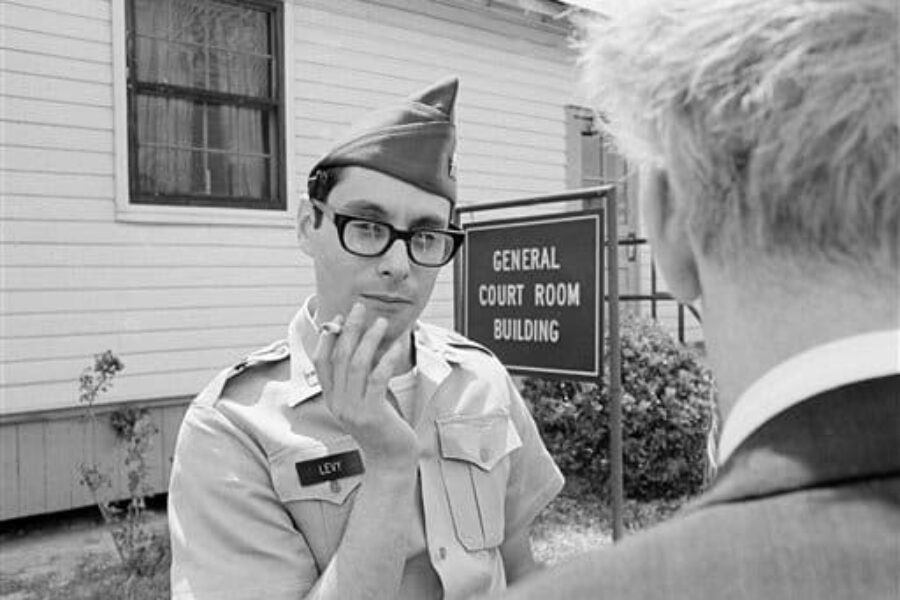51 years ago today, a Supreme Court case, Parker v. Levy, was argued about the freedom of speech while serving in the military. This all started when an Army Captain Howard Levy refused to train Green Beret medics because he said “became clear to me that the Army [was using medics] to ‘win hearts and minds’ in Vietnamese villages – while still burning them to the ground in search-and-destroy missions.” He also “urged black enlisted men to refuse to serve in Vietnam because “they are discriminated against and denied their freedom in the United States, and . . . discriminated against in Vietnam by being given all the hazardous duty and they are suffering the majority of casualties.” In 1967, Captain Levy was, per Justia.com, “court-martialed and dismissed from the service, required to forfeit his pay and allowances, and sentenced to three years of hard labor.”
He was convicted under Articles 133 and 134 of the Uniformed Code of Military Justice (UCMJ). Captain Levy was released after serving two years in prison, but he continued to appeal his conviction. The Federal District Court had affirmed his conviction, but the U.S. Court of Appeals for the Third Circuit had reversed the decision on the grounds that the UCMJ articles “were so vague as to be unconstitutional.”
But on June 19, 1974, the U.S. Supreme Court reinstated the original conviction, with a 5-3 decision. Since then, this cause is used as a legal foundation as a military necessity surrounding good order and discipline. Captain Levy has been quoted, “I was unjustly court‐martialed, unjustly sentenced, …unjustly spent two and a half years in prison, and I believe the Supreme Court ruling was unjust.”




